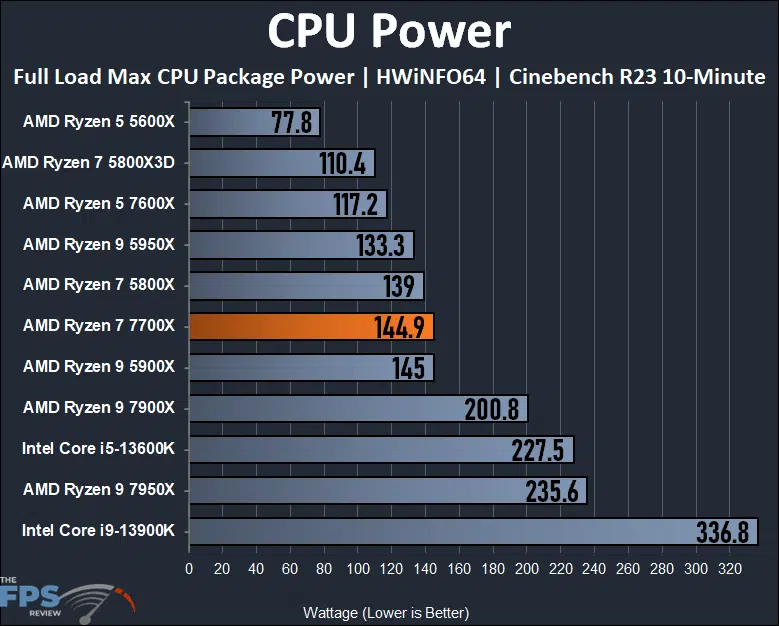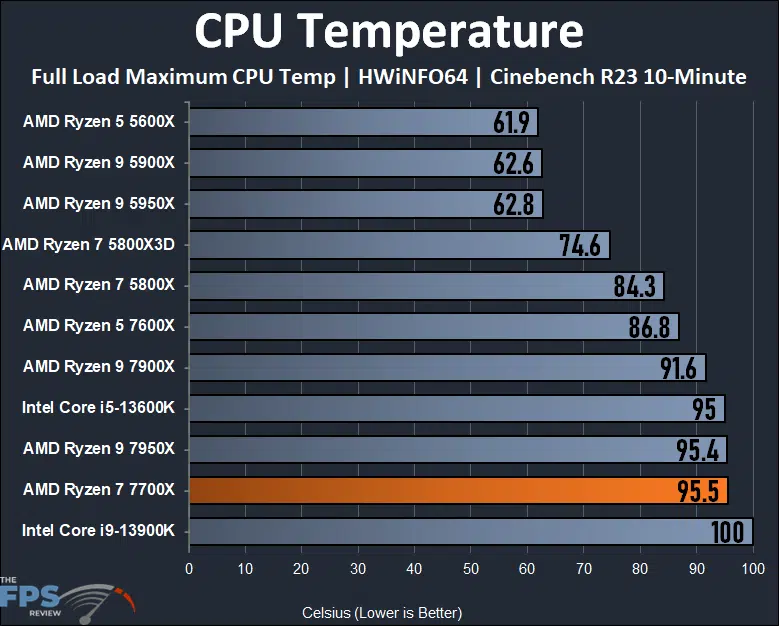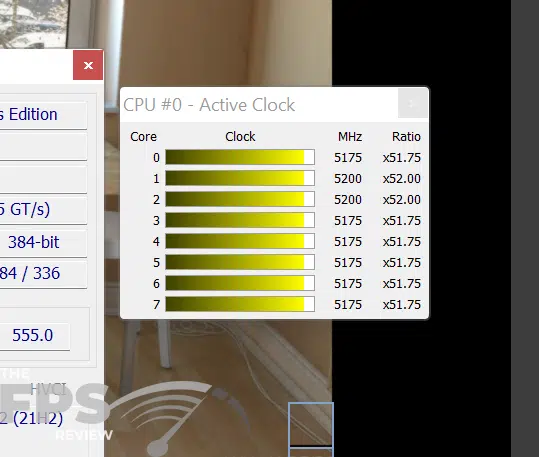Power Temperature and Frequency
We will now test the power and temperature on each CPU, as well as the frequency on the Ryzen 9 7950X. To run these tests we ran Cinebench R23 for 10 minutes and took readings according to HWiNFO64, the latest version.
Power

In our testing the AMD Ryzen 7 7700X sits around the same power level as the Ryzen 9 5950X CPU, but only 4% higher power than the Ryzen 7 5800X it is replacing. This is a small power increase considering the large performance increase we got over the Ryzen 7 5800X. This proves to be an efficient CPU, its performance increase well out scales the power increase compared to the 5800X. The Intel Core i5-13600K, for example, at 200W has a huge 39% higher power utilization over the 7700X. Compared to the 7600X, the 7700X uses 24% more power.
Temperature

The TjMax of the AMD Ryzen 7 7700X is 95c, and as such our CPU is running at 95c, right where AMD intends it to run safely. This is 13% warmer than the Ryzen 7 5800X ran at with the same cooler. The Intel Core i5-13600K runs at the same temperature of 95c.
CPU Frequency
The CPU Boost Frequency is up to 5.4GHz on the Ryzen 7 7700X. What we want to know though is how high it can attain when running all cores at the same time. For this test, we again ran Cinebench R23 to see in HWiNFO64 what all the cores looked like.
As you can see, running all the cores at full-throttle in Cinebench R23 the Ryzen 7 7700X can achieve between 5175MHz-5200MHz (5.17GHz-5.2GHz) frequency on all cores. That is close to its maximum single-core frequency of 5.4GHz, so this is no frequency slouch even on full-load all-core usage. We did see it boost up to 5.4GHz on single-core.
